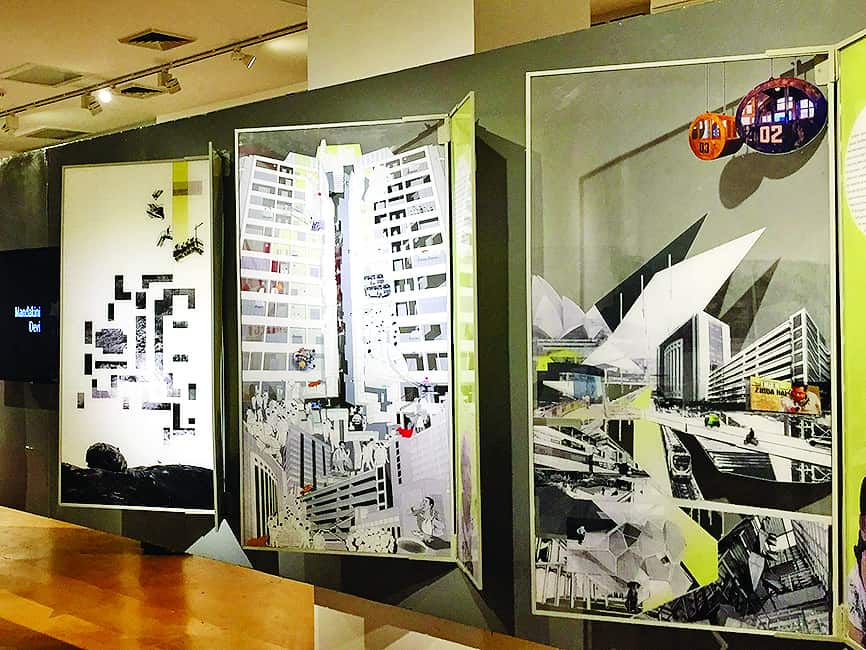
Can architecture die? Or is it just constantly changing?
From colonial buildings to spanking new institutions, every city has its distinctive architecture. The ‘smart cities’ idea seems so other-worldly, like a fantasy township in outer space. Reflecting on this change and questioning the state of affairs of this profession, 13 concerned design practices have assembled an exhibition.
The national travelling exhibition ‘The Death of Architecture; Circa 2000’, brings together evocative artworks, poetry, photographs and graphic installations. The aim is to decode and amplify the actions that slowly tear and restructure the fabric of our cities.
Adopting the language of poster designers and artists to communicate their thoughts, these architects have displayed concepts like nostalgia, change, ruins, demise and birth. While some of them discuss the cause of this death, others prefer to perceive it not as an end but the resurrection of new designs.
“It is our take on what we think are probably missing. Cities are being changed in the name of modernity. Old cities, temple towns, are being torn down and there is a loss of beauty,” says Suparna Bhalla, one of the curators of the exhibition.
The exhibition showcases work that will lead to discussions about the present, and yet help in creating meaningful dialogues about the future. It allows cities and design communities to structure conversations that are pertinent to their immediate realm and concerns. It also elaborates how by-laws of the policy makers slowly destroy the beauty of a city.
One of the installations, titled ‘Remembrane’ is based on two giant commercial hubs, Connaught Place and Nehru Place.
Talking to citizens of different generations about how they remember the place, the work creates a memory map of the changes these places have undergone. “Memory plays a big role in both building a place and also ruining it,” explains Bhalla.
The title, ‘Death of Architecture’ attempts to provoke people to notice the mindless growth of construction. “It is very important to engage with people. It is the citizens who have to demand what is sustainable and correct,” says Bhalla.
So drop in, to learn more about the concerns and issues of the changing structures in our cities. The exhibition is being held at India Habitat Centre till July 18 and will then head to Goa, Bengaluru and other cities.
Delhi hosted what organisers describe as the world’s first player auction in golf, launching ‘72…
An elderly woman recalls how her six-year-old granddaughter lay bleeding after a speeding car hit…
Municipal Corporation of Delhi plans a unified policy enabling RWAs to adopt and maintain parks…
A 17-year-old boy allegedly died by suicide after jumping before a moving train at Uttam…
Delhi High Court grants bail to 26-year-old Thar driver accused of mowing down two in…
Two Rohini men arrested for fatally stabbing one person and injuring another during a robbery…